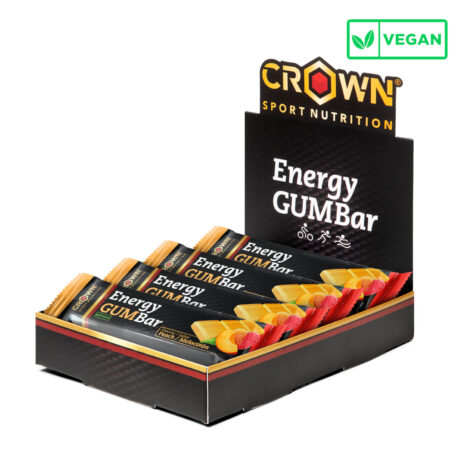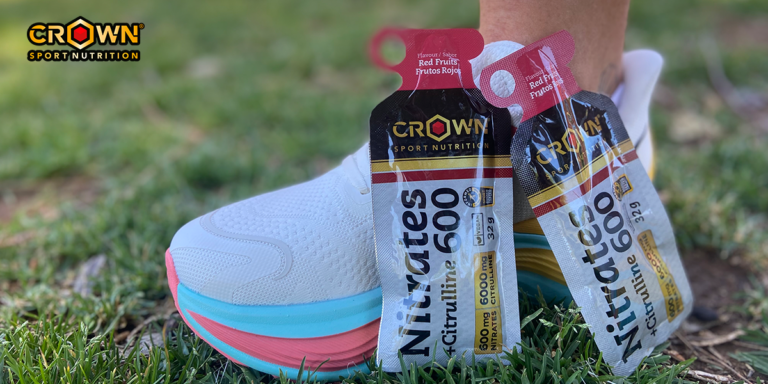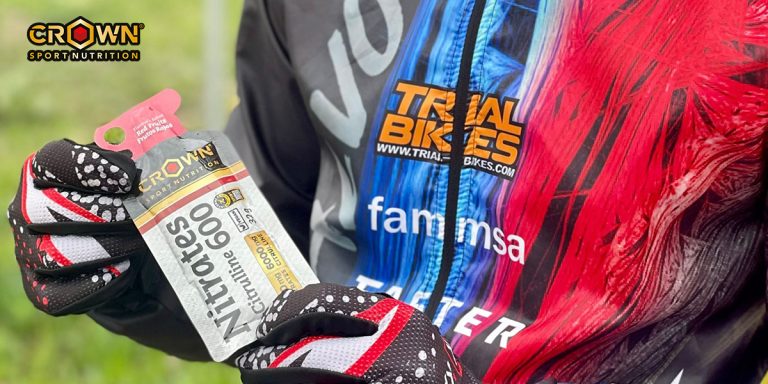Carbohydrates and Durability in Endurance Sports: Key to Performance
What is Durability in Endurance Sports?
Performance in endurance sports is determined by multiple components, ranging from physical to technical or tactical factors. Among the physical ones, three key indicators have traditionally been proposed to explain athlete performance: maximum oxygen consumption (VO2max), the so-called “anaerobic threshold,” and effort economy. The combination of these three elements has long been considered the foundation for sporting success.
However, in recent years, a new factor has emerged that could be crucial for performance: durability. Imagine an athlete who, in a stress test, presents a very high VO2max or who, in a field test, shows a very high anaerobic threshold. While these indicators measured under “fresh” conditions may be relevant, they will be of little use if the athlete cannot maintain these values after hours of exertion when they need to make a breakaway or a sprint.
More and more, performance in endurance sports, especially in disciplines such as cycling, depends on the ability to sustain high power values in critical race situations after hours or even days of effort (as in a stage race). This ability to mitigate performance decline under fatigue conditions is what is considered durability.
Relationship Between Carbohydrates and Sports Performance
Mechanism of Carbohydrates in Fatigue
As we have seen in previous articles, carbohydrates are taking a leading role in athletes’ nutrition. While at low-intensity exercise, fats are the main energy substrate, as intensity increases, carbohydrates become more relevant. This is why, in competition, the depletion of glycogen stores is a limiting factor for performance.
This physiological basis explains why athletes consume carbohydrate-rich foods (sports drinks, gels, bars, etc.) during competitions. In fact, we know that cyclists, considered the benchmark for endurance sports, consume large amounts of carbohydrates (90 to 120 grams per hour). But what role do these play in fatigue resistance or durability?
Scientific Evidence: Recent Studies
Until recently, many studies showed that carbohydrate consumption during a test (e.g., a 2-hour time trial) improved performance, but the effects on durability, understood as the drop in performance due to accumulated fatigue, were unknown.
However, in recent years, evidence suggests that carbohydrates may also improve this indicator. A study evaluated performance in a 3-minute maximal test both without prior fatigue and after 2 hours of moderate-intensity exercise, comparing the effects of consuming 60 grams of carbohydrates per hour with a placebo. The results showed that athletes who consumed carbohydrates maintained their performance after 2 hours of exertion, whereas those who took a placebo experienced a 7% drop (254 W versus 236 W).
Another recent study analyzed the effects of carbohydrates on durability in cyclists and triathletes. They performed a stress test before and after 2.5 hours of moderate-intensity cycling. Participants repeated the same protocol, consuming either 60 grams of carbohydrates per hour or a placebo. As expected, the power associated with thresholds in the stress test decreased under fatigue, although to a lesser extent when consuming carbohydrates. Specifically, the first threshold dropped by 6% with the placebo and only by 3% with carbohydrates.
Additionally, carbohydrate consumption managed to keep blood glucose levels stable, whereas in the control group, these decreased at the end of the test. This is one of the primary mechanisms supporting carbohydrate intake during prolonged exercise. Despite the progressive depletion of muscle glycogen stores, carbohydrate consumption can attenuate liver glycogen depletion, preventing hypoglycemia.
How to Optimize Carbohydrate Consumption to Improve Durability
We see how carbohydrate consumption during exercise (in this case, 60 grams per hour, although the amount may vary depending on the duration and intensity of the test) can mitigate the deterioration of physiological markers such as thresholds or performance under accumulated fatigue.
These results are vital for long-duration events like cycling, where success depends on the ability to exert high-intensity efforts under fatigue conditions.
Conclusions
- Carbohydrate consumption during exercise helps maintain performance under fatigue conditions.
- Improves resistance to the drop in the anaerobic threshold after several hours of exertion.
- Prevents hypoglycemia by keeping blood glucose levels stable.
- Can be crucial in endurance competitions where performance in critical situations makes the difference.
Therefore, durability does not only depend on an athlete’s initial physiological capacity but also on their nutritional strategy, especially regarding carbohydrate consumption.
10% DISCOUNT ON THE WEB WITH CODE:
CROWN10
*Free shipping on orders over 25€.
HYPER(1:0,8) LINE
The new product line Hyper(1:0,8) has been developed on the basis of the latest scientific advances
ENERGY GEL
Liquid texture energy gel with carbohidrates, aminoacids and minerals. Caffeinated and non caffeinated version.
ISOTONIC DRINK (ISODRINK & ENERGY)
Premium isotonic with carbohydrates, salts and amino acids in proportions according to science. Banned substance tested by Informed Sport.
Author
Pedro Valenzuela
Researcher at the Physiology Unit of the University of Alcalá and the Performance Monitoring Unit at the Sports Medicine Center (AEPSAD, CAR of Madrid).
Website: www.fissac.com
References
1 Joyner MJ, Coyle EF. Endurance exercise performance: the physiology of champions. J Physiol 2008; 586(1):35–44. Doi: 10.1113/jphysiol.2007.143834.
2 Maunder E, Seiler S, Mildenhall MJ, et al. The Importance of ‘Durability’ in the Physiological Profiling of Endurance Athletes. Sport Med 2021; 51(8):1619–1628. Doi: 10.1007/s40279-021-01459-0.
3 Clark IE, Vanhatalo A, Thompson C, et al. Dynamics of the power-duration relationship during prolonged endurance exercise and influence of carbohydrate ingestion. J Appl Physiol 2019; 127(3):726–736. Doi: 10.1152/japplphysiol.00207.2019.
4 Dudley-Rode H, Zinn C, Plews DJ, et al. Carbohydrate ingestion during prolonged exercise blunts the reduction in power output at the moderate-to-heavy intensity transition. Eur J Appl Physiol 2024; (0123456789). Doi: 10.1007/s00421-024-05687-w.
5 Gonzalez JT, Fuchs CJ, Smith FE, et al. Ingestion of glucose or sucrose prevents liver but not muscle glycogen depletion during prolonged endurance-type exercise in trained cyclists. Am J Physiol – Endocrinol Metab 2015; 309(12):E1032–E1039. Doi: 10.1152/ajpendo.00376.2015.












